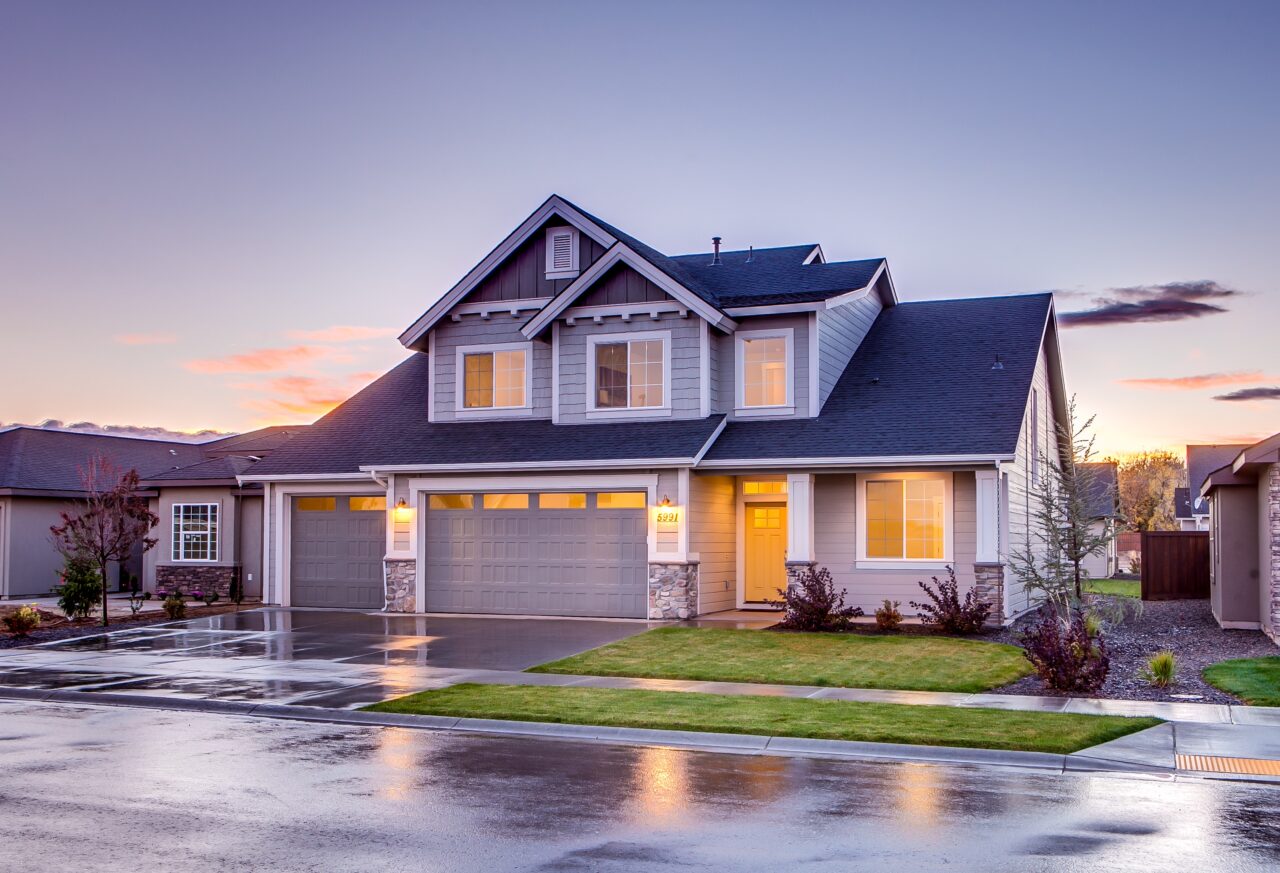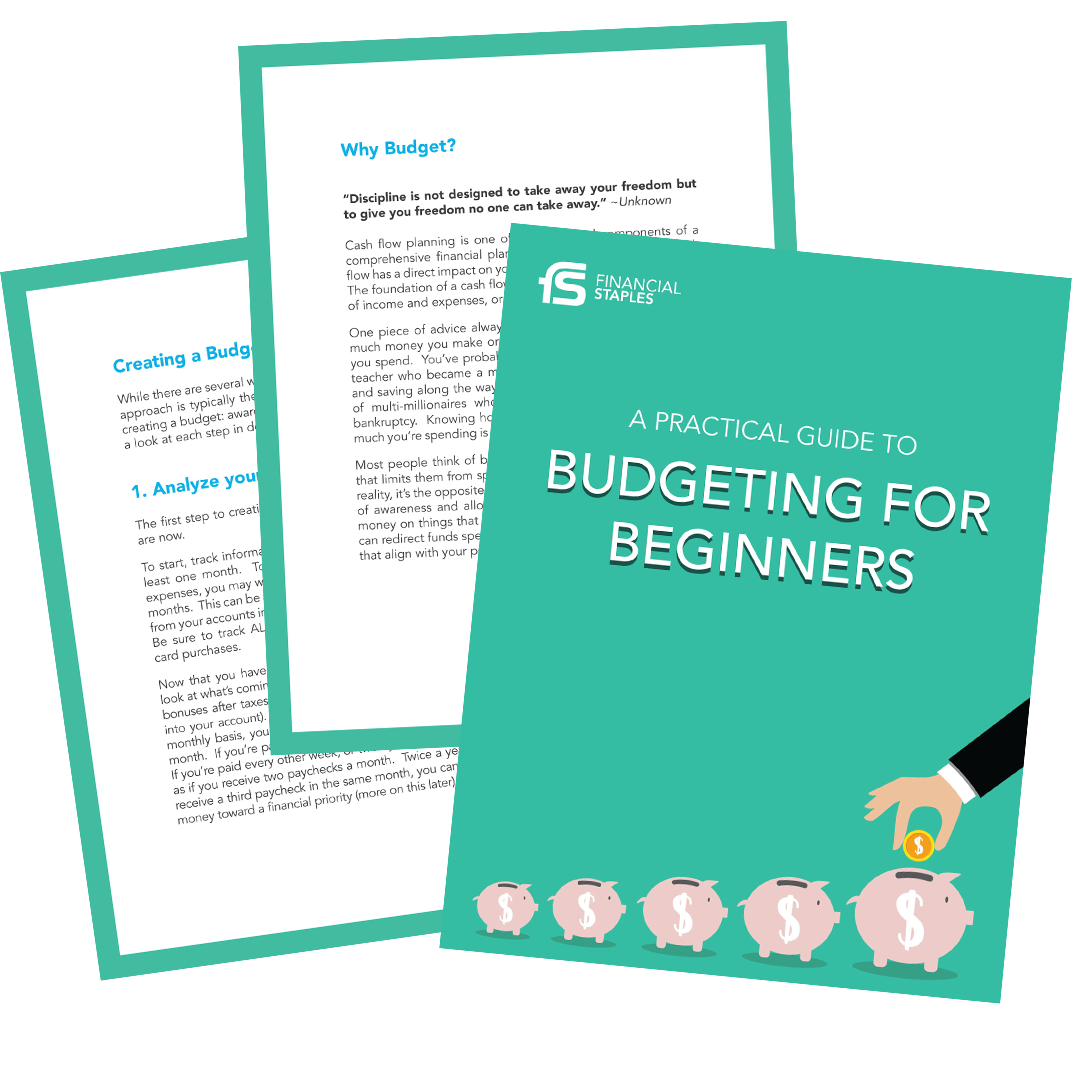When I purchased my first home, I thought I was prepared for homeownership. I did extensive research and prepared myself financially for the responsibility. I was an aggressive saver and my only debt was student loans (of less than $5,000). After buying my first home and owning it for nine years, I learned many invaluable lessons that showed me I wasn’t truly prepared for homeownership. I frequently speak with people who purchased homes they couldn’t afford and dug themselves in a hole that takes years to recover from. I also speak with clients who want to buy their first home yet underestimate the commitment required.
I created this guide so you can look at homeownership from an objective point of view. Please note that this guide only pertains to buying a home as a primary residence.
Determine if Homeownership is Right for You
There is no right or wrong answer when it comes to your preference to own or rent. The first step is to determine if homeownership is in line with your goals. We often feel pressure to buy a home because it’s the “right” thing to do or a sign of success. The decision to own a home is more of a personal or lifestyle decision than a financial one, and you should consider it carefully. After all, it’s one of the largest purchases you’ll make in your lifetime. When deciding to own or rent, here are several factors to consider:
- How long do you plan to stay in the home? Generally, experts suggest that you plan to stay in your home for seven to ten years.
- How important is flexibility to you? Think about what would happen if you lost your job, changed roles, or had to relocate quickly.
- Do you frequently travel, either personally or for work? If so, do you want the responsibility of maintaining a home that you’re not spending much time in?
- Are you ready for the financial commitment? Renting may be less costly after factoring in all the expenses associated with ownership. You should be able to continue saving for your future while you own a home.
Be aware of the possible downsides of homeownership before taking the plunge. Here are a few to consider:
- Unpredictable maintenance and repair costs – If you’re not prepared, buying a house can put a considerable strain on your finances. Regular maintenance costs alone can add up, and things will break. Your ongoing maintenance and repair fees will vary based on the type of home you want and how much responsibility you want to take on. If you’re handy or enjoy things like yard work, your expenses may be lower. Outsourcing these tasks may increase your costs.
- Lack of freedom and flexibility – Renters have flexibility to move quickly and easily for any reason. When you own a home, you have to sell it or find a renter (if your HOA allows). Think about what would happen if you lose your job and want to reduce your monthly bills, or if you had to relocate quickly for an enticing job opportunity.
- Opportunity cost – There are three major costs associated with homeownership that don’t exist when you rent: a down payment and closing costs when you buy; maintenance and repairs while you own; and commissions and closing costs when you sell. By incurring these costs, you’re giving up the potential return you could earn if you rent and invest this additional cash in the market.
If you decide that homeownership is a good choice, consider whether a single-family home, townhouse, or condominium is best for your lifestyle. If you have a family or are planning for one, a single-family home may be a good fit. If you’re single and don’t want the responsibility of a home, consider a condo or townhouse.
Get Your Financial House in Order
One of the most important ways to prepare for homeownership is getting your financial house in order (pun intended)! You will hear a lot of noise about how easy it is to buy a home with little or no money down. People will tell you how much you can afford without having a clue about your financial goals. To prevent yourself from making a big purchase that you will regret, you need to understand how much you can actually afford, not what a lender or anyone else says you can afford. You want to be in a position where you can live a comfortable lifestyle, have fun, and continue saving for financial freedom.
To start, take a look at your current budget. How much are your current rent and utilities? How much are you saving? How much debt do you have? You should have an emergency fund in place that can cover at least six months of living expenses. You should be free of any high-interest debt such as credit cards or personal loans. A low debt-to-income ratio and good credit are essential. Student loans are not a dealbreaker when it comes to buying a house, but I recommend having a solid plan for managing them. Your budget should be comfortable after saving, debt payments, and living expenses. If you haven’t taken care of these fundamental steps or your budget is tight, you’re probably not ready to own just yet.
The next step is to determine what you can afford. Take a look at current mortgage rates and do a quick calculation to see what size loan is realistic. For example, your current rent may be $2,000 per month. A $350,000 loan at 3.5% for 30 years results in a mortgage payment of ~$1,600 per month. This mortgage payment only includes principal and interest. Property taxes and homeowners insurance are also added to this payment and will vary based on your location. To avoid private mortgage insurance (PMI), you need to put 20% down. Using the previous example, a $435,000 home with 20% down (or $87,000) results in a mortgage that’s ~$350,000. In addition to your mortgage payment, which includes principal, interest, property taxes, insurance (and possibly PMI), you need to budget for ongoing maintenance, repairs, and higher utilities – especially if you’re moving to a larger space.
If you’re going for a single-family home, you may have monthly or annual homeowners association (HOA) fees. Condos and townhomes are more likely to have monthly HOA fees. In the example above, where your rent payment of $2,000 feels comfortable, you may need to reduce the loan amount so your total monthly expenses don’t inflate your budget. Using the same interest rate and term above, a $250,000 loan results in a mortgage payment of ~$1,100 per month. This gives you ~$900 of wiggle room to account for property taxes, insurance, and other ongoing costs. Even if you own a condo or townhouse where the association covers many of the maintenance costs, you’re still responsible for repairs inside your unit. The association fees may also increase over time, or the HOA may charge you a special assessment for deferred maintenance of the common areas.
You may be comfortable stretching your budget beyond what you’re currently paying for rent. A conservative rule of thumb is to spend no more than 25% of your take home pay on your mortgage payment (principal, interest, taxes, and insurance). Another rule of thumb is to aim for a home that costs two to three times your gross annual salary. If you have significant debt or other financial obligations and have a down payment less than 20%, steer towards the lower end of this range. If you have little or no debt and you’ve saved 20% for a down payment, you can set your sights higher.
Now that you have an idea of how much you can afford, look in your desired area and see if owning a home in this price range is realistic.
In addition to understanding your monthly budget, you should set a target for how much you need to save before buying a home. How much do you currently have saved for a down payment in addition to your emergency fund? Is saving for a 20% down payment realistic? Do you qualify for down payment assistance programs? Either way, I recommend having money saved for the following:
- Down payment – If saving for a 20% down payment is not realistic, I recommend putting at least 10% down. This way you can go into a home purchase with some equity. Factor in any down payment assistance programs that are available.
- Closing costs – A good estimate for closing costs is 2-5% of the home’s value.
- Moving and miscellaneous expenses – This includes additional furniture and décor to fill a larger space, appliances such as a refrigerator or washer and dryer, minor cosmetic updates such as paint or new flooring, and any initial maintenance or repairs.
Remember, you should have money set aside for these purposes in addition to your emergency fund. You never want to wipe out all your savings when you purchase a home. This way you’re prepared if you have any unexpected expenses shortly after moving in, whether personal or related to the home. It’s also a good idea to have a higher emergency fund when you own a home. In general, owning a home and running a business are good reasons to have more money set aside. I suggest setting aside 1-2% of the home’s value annually for maintenance and repairs.
Location, Location, Location
Now that you have your finances in order, it’s time to decide where you want to live. Here are a few questions to help you decide on your desired location:
- Is it important to live close to family or friends?
- If you’re in a large metropolitan city, do you prefer the city or suburbs?
- If you have children (or are planning to have children), do you want to live in an area with young families?
- How far are you willing to commute to and from work?
Even though buying a home is more of a personal or lifestyle decision than an investment decision, you still want to consider the resale value. Your home is most likely one of the largest purchases you’ll make in your lifetime, so you’ll want to get as much money as possible when you sell. There are basic indicators of good resale value for the home itself, and there are outside factors such as great schools, nearby amenities, a safe neighborhood, and a quiet street. Finally, HOAs are not always a bad thing. The restrictions can help in preventing things that can lower the value of your neighborhood. We’ve all seen neighborhoods with unkempt yards and homes with “unique” paint colors. HOAs sometimes provide attractive neighborhood amenities too, such as a pool, tennis court, or clubhouse.
Assemble the Dream Team
There are two major players on your home purchase dream team: a mortgage broker and a real estate agent. I recommend consulting with a mortgage broker first. You may hear the terms loan officer and mortgage broker used interchangeably but there are differences. A loan officer can only offer mortgage options from the financial institution they represent, such as the bank. A mortgage broker is independent and can offer mortgage options from a variety of lenders. If you have an existing relationship with your bank, you may want to start with a loan officer there. If you want to shop around for competitive rates, consider a mortgage broker. Either way, a broker or loan officer is paid a 1-2% commission of your loan amount. When you’re ready to start looking for a home, a mortgage broker or loan officer can help you with the pre-approval process. This process confirms that you’re qualified to take out a loan for the amount needed to purchase your desired home. Once approved, you will receive a pre-approval letter that you can include with an offer to purchase a home. This pre-approval letter shows sellers that you’re a serious buyer and sellers are often more willing to negotiate if you have one. As I mentioned before, you may qualify for much more than you calculated on your own. Don’t let this tempt you into looking for a more expensive home!
After a mortgage broker, the next person you should find is a real estate agent. I recommend finding an experienced agent who is familiar with your desired area. Sometimes, your mortgage broker will have recommendations for an agent. You can also ask for a referral from friends, family members, or coworkers. It’s good to understand how your real estate agent is paid. Typically an agent receives a commission of the home purchase price, split between the listing agent and selling agent (3% each). They may also receive referral fees from closing attorneys or other professionals they recommend. Your agent can help you locate specific neighborhoods and homes that are a good fit based on your criteria. Here are a few other things to consider:
- If your desired neighborhood has an HOA, what are the rules and restrictions? Does the HOA have reserve funds in place to cover unanticipated or deferred expenditures?
- Does your desired neighborhood allow renting? Some single family neighborhoods with HOAs prohibit renting. Many condos or townhomes allow a certain percentage of owners to rent their units and they maintain a waitlist for potential landlords. These restrictions could become relevant if you have a financial hardship or need to relocate quickly.
It’s important to understand that both mortgage brokers and real estate agents are paid on commission. A higher loan or purchase price results in more money to them, so they have an incentive to push you outside your comfort zone. Being prepared and having a firm budget before building your team keeps you on the right track.
Don’t Rush
When buying a home, you may feel pressure to make a quick decision. Remember, this is one of the largest purchases you will make in your lifetime. There will always be another home that you desire. Don’t feel pressure to make a decision that is hard to back out of without financial repercussions.
When you find your dream home your real estate agent will help you make an offer. Be sure to include a contingency for due diligence so you can get a home inspection. It would be helpful if you also did a little research of your own so you feel comfortable with your decision. Here are a few suggestions:
- Drive around the neighborhood at different times of the day. Is the area quiet? Do you feel safe?
- Is your neighborhood easily accessible? Pay attention to the number of entrances and ease of getting in and out of the neighborhood.
- If you like to entertain, scope out guest parking availability or designated guest parking spaces.
- If you’re aiming for a single-family home, thoroughly inspect the inside and outside of the home after a hard rain. Look for signs of leaks inside, poor drainage or flooding outside.
Don’t be afraid to negotiate and know that it’s ok to back out if you’re not comfortable. Finally, remember to revisit your budget and adjust for anticipated repairs or cosmetic updates.
Key Takeaways
- Homeownership can be rewarding and a way to build wealth. It’s important to fully understand what you’re getting into so you don’t regret your decision.
- Purchasing a primary residence is a lifestyle decision, not an investment decision. Think carefully about buying a home that fits into your lifestyle and goals. Please don’t do it because you feel you should.
- Before taking the plunge, have your finances in order and do your research.
- Work with people you trust and don’t feel rushed to make a quick decision.
Need help preparing for your first home purchase? Let’s have a conversation!
Did you enjoy reading this post? Want financial inspiration, education, and updates delivered straight to your inbox? Sign up for our newsletter!
Disclaimer: This article is provided for general information and illustration purposes only. Nothing contained in the material constitutes tax advice, a recommendation for purchase or sale of any security, or investment advisory services. I encourage you to consult a financial planner, accountant, and/or legal counsel for advice specific to your situation. Reproduction of this material is prohibited without written permission from Chloe Moore, and all rights are reserved. Read the full disclaimer here.


